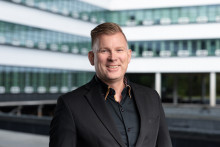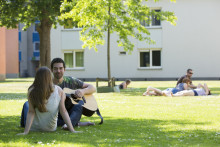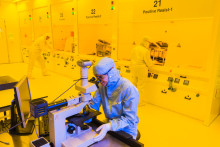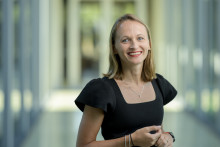The memorandum marks the first step on European soil for the Canadian institute of nanotechnology. Nils Petersen, director general of NINT, explained why they selected MESA+: `The focus of our research is the same: nanotechnology. Furthermore, MESA+ has a strong regional, national and European network, and Canada and the Netherlands have always maintained good relations.'
NINT is an institute of the Canadian National Research Council and a joint initiative of the Canadian government, the Alberta administration, and the University of Alberta. It employs several hundred researchers. It was founded in 2001 and in less than four years time it has become the leader in Canada in the area of nanoscience and nanotechnology. MESA+ (450 employees) holds the same position in the Netherlands.
The memorandum of understanding underlines the mutual desire to collaborate on existing and new research projects. Also, the two universities plan to exchange students and researchers. Finally, the two parties plan to share insights and practices in nanotechnological research and to market the fruits of their labor.
Commercial Director Kees Eijkel: `The two institutes have the same profile. Just like MESA+, NINT values active commercialization, such as spin-offs. Furthermore, both see the importance of critical mass thinking: realizing that power comes with size. Also, both institutes greatly value a high quality of research and are national leaders in their area.'
To Rector Henk Zijm, the signing is a logical step, considering the existing relationships. `NINT is looking for strong alliances in Japan and Europe. For Europe, MESA+ is the obvious choice. The contacts were already there. We regularly visit the Canadian institute, and Scientific Director David Reinhoudt is a member of NINT's board of governors.' Zijm sees potential joint projects in the future. `Nanotechnology is expensive so perhaps we should launch projects together and share the advantages. We will also start exchanging PhD students soon.'
The signing of the - non-binding - memorandum can be considered the first real step towards shaping their collaboration. Canadian Ambassador Colleen Swords put it like this: `Sixty years ago we were here to liberate; today we are here to collaborate.
Trans. Jeroen Latour







